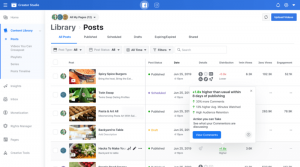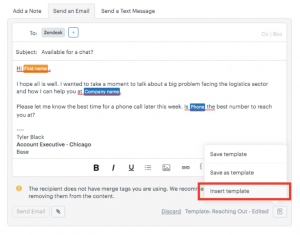Having a blog allows your business to do a few important things. It gives potential customers solutions to their problems, shows the world that you’re an authority in your field, and helps your website rank on search engines.
But maybe you’ve noticed your blog traffic flagging. It might be because of one of these simple, easy-to-avoid errors in the field of search engine optimization, otherwise known as SEO.

1. You’ve Chosen The Wrong Keywords
Too many businesses build their websites without using long-tail keywords, which are the type of keywords preferred by users and search engines. Long-tail keywords are longer, more detailed, and more specific. They are more helpful to your audience because they can search these longer terms and find relevant information to their search right away.
The way you define your product or service might be different from the way your potential customers see them. Or it may be that you’re using terms that are too broad.
Before you begin optimization, do some research with the help of tools like SEMrush and Google AdWords’ keyword planner to find the keywords that are right for you. Put yourself in your customers’ place: What kind of information would you be searching if you were them?
Keep in mind that not everyone would search using the exact same words. Let’s say you run a law firm in Philadelphia. Search terms might include “Philadelphia real estate law,” “real estate attorneys in Philadelphia” and “Philadelphia real estate lawyers.”
Once you find the right keywords, use them judiciously. Google’s search algorithm values quality over quantity, and copy that’s overloaded with keywords can seem artificial, to readers and to Google.
2. You’re Not Using Social Media
Your business might have a Facebook page and a Twitter account, but if you’re not using them to boost your website content, you’re missing out.
When you put a social sharing button on your blog – note the Twitter/LinkedIn/Facebook icons at the top of this post – you’ve made it easier for your audience to distribute your content to their connections. And when you promote recent blogs on your social media pages, you can boost traffic.
In fact, you don’t always have to promote recent posts. If you can find a way to make an older blog post relevant, there’s nothing wrong with sharing it again. In fact, depending on the channel, some experts believe content can be reposted three to five times.
Let’s say it’s the last Friday in April, AKA Arbor Day, and you’re a landscaping company. It’s the perfect time to promote that “5 Benefits of Planting Trees” blog post from the previous year.
When more readers share your content, you become a trusted voice in your field, which helps increase your website authority and lifts your search engine ranking.
3. You’ve Forgotten About Inbound Links
When other websites – industry publications, local news outlets, other blogs – link to your blog, that’s what known as an inbound link.
These links are useful because they give potential customers another path to your content. But unlike the other points on our list, this one might seem like something you can’t control. After all, how can you make someone link to your site?
Remember that other people want to link to increase inbound links to their sites as well. If you make a habit of including outbound links to related content on blogs that you enjoy and trust, those bloggers will be encouraged to link back to you.
We would also suggest offering your services as a guest blogger for more established sites. It’s a win-win situation: the other site doesn’t have to worry about that week’s blog post, and you can link back to your site from the guest post.
Digital & Social Articles on Business 2 Community(35)





